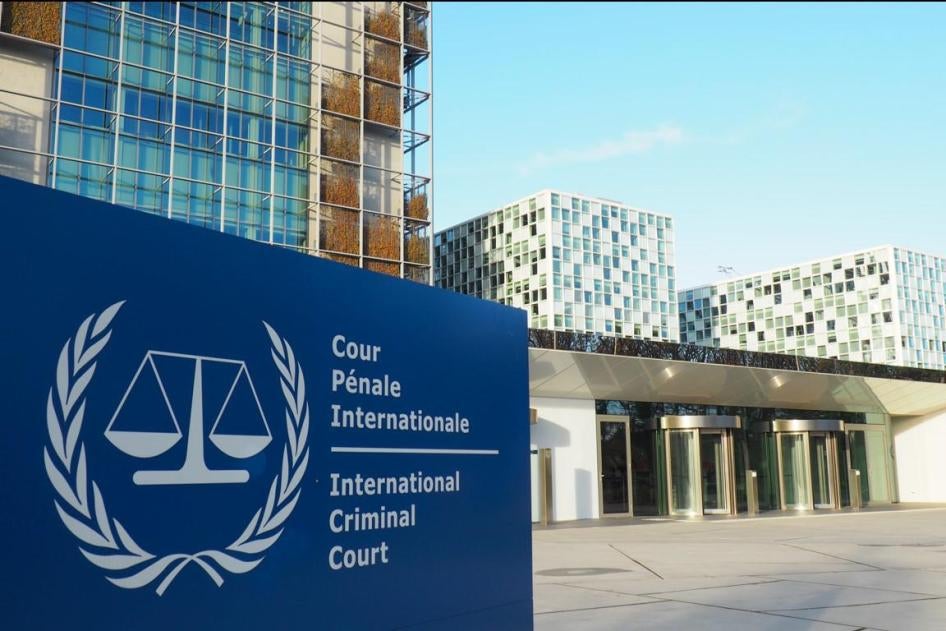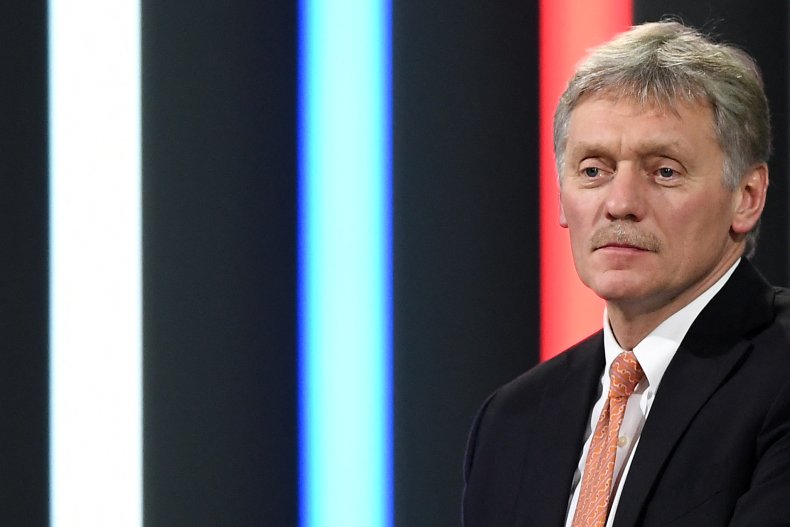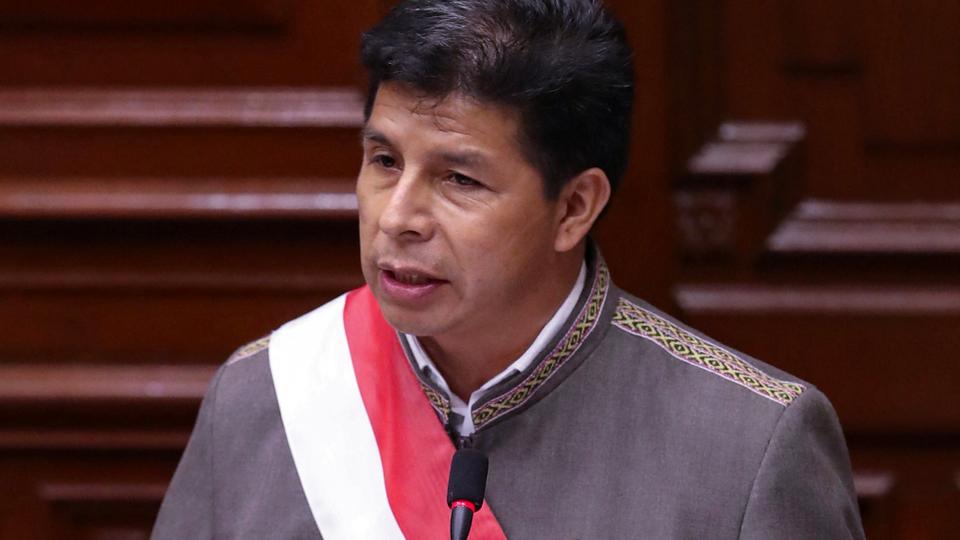Landmark Case of ‘Janjaweed’ Militia Leader Opens April 5

© 2018 Marina Riera/Human Rights Watch
(The Hague) – The International Criminal Court’s trial of Ali Kosheib, or Kushayb, will open on April 5, 2022, and offers the first opportunity to see a leader face prosecution for massive crimes committed in Darfur nearly 20 years ago, Human Rights Watch said today. Human Rights Watch issued a question-and-answer document and a video ahead of the trial.
“Kosheib’s trial is a long-awaited chance for victims and communities terrorized by the notorious Janjaweed militia and government forces in Darfur to see a leader held to account,” said Elise Keppler, associate international justice director at Human Rights Watch. “In the face of steep odds and no other credible options, the ICC is serving as the crucial court of last resort for Darfuris.”
The video focuses on the significance of the trial and on what else is needed by the Sudanese authorities for justice for atrocities committed in Darfur. The question-and-answer document covers:
Background on the accused, the Janjaweed militia group, and the conflict in Darfur,
How the trial will proceed and the participation of victims in the proceedings,
The significance of the trial and efforts to make it accessible to local communities,
Needed steps by Sudanese authorities to surrender former president Omar al-Bashir and three other fugitives, and
The current situation in Darfur and Sudan, including continued abuses.
“For all these years, those implicated in serious crimes and other abuses in Darfur and Sudan have largely suffered no consequences – and in some instances, have even been rewarded,” Keppler said. “Would-be abusers should take note that they can end up in court even if it is slow going. Now, Sudanese authorities should surrender the remaining fugitives, including former president Omar al-Bashir, so victims have the opportunity to also see them held to account.”
First ICC Trial on Darfur Crimes: Ali Mohammed Ali, Known as Ali Kosheib or Kushayb, Janjaweed Leader
Questions and Answers
Who is Ali Kosheib (also spelled “Kushayb”)?
What are the charges Kosheib faces at the ICC?
How did Kosheib come into ICC custody?
Why is Ali Kosheib’s upcoming trial and verdict significant?
Who else is sought by the ICC on alleged crimes committed in Darfur?
Why hasn’t Sudan turned over the other suspects to the ICC? And what more does it need to do?
When will Kosheib’s trial begin and what will it involve?
Will the victims be able to participate in the trial or receive reparations?
What are Kosheib’s rights as a defendant and will Kosheib be at the trial?
What are the penalties in the event that Kosheib is convicted?
How will victims and local communities be able to follow the trial in Sudan?
How did the ICC become involved in crimes in Darfur?
What is the current situation in Darfur?
What is the current situation in Sudan?
1.Who is Ali Kosheib (also spelled “Kushayb”)?
Ali Kosheib, or Kushayb, is the nom de guerre of Ali Mohammed Ali, identified by the International Criminal Court (ICC) as Ali Mohammed Ali Abd–Al-Rahman. Kosheib is believed to have been the principal leader of the Janjaweed militias in the Wadi Saleh area of West Darfur. He also held commanding positions in Sudanese government auxiliary forces, the Popular Defense Forces and Central Reserve Police.
In early 2003, the Janjaweed worked alongside the Sudanese government forces during its armed conflict with rebel groups to carry out a systematic campaign of “ethnic cleansing.” The campaign targeted civilians from African Fur, Masalit, and Zaghawa ethnic groups, from which the members of the rebel groups were drawn. Attacking from the air and land, Sudanese government forces and allied militias killed, raped, and forcibly displaced more than 2 million people from their homes and land. The Sudanese government recruited, armed, and trained the Janjaweed forces.
Kosheib is implicated as a key leader in attacks on villages around Mukjar, Bindisi, and Garsila in 2003-2004. Kosheib is also implicated in leading or participating in deadly attacks on ethnic Salamat communities in Central Darfur in April 2013.
2. What are the charges Kosheib faces at the ICC?
Ali Kosheib is charged with 31 counts of war crimes and crimes against humanity committed in in 2003 and 2004 in four villages, Kodoom, Bindisi, Mukjar, and Deleig, in West Darfur. Murder, attempted murder, pillaging, rape, torture, intentionally directing attacks against the civilian population, forcible transfer, destruction of property, outrages upon personal dignity, persecution, and cruel and other inhumane treatment are among the charges. Kosheib is charged both with directing attacks, and also mobilizing, recruiting, arming, and providing supplies to Janjaweed militia under his command.
ICC Darfur Trial Questions and Answers
Human Rights Watch identified Kosheib more than 15 years ago as an individual who should be investigated by the ICC for his alleged crimes in Darfur.
The International Criminal Court issued the first arrest warrant for Ali Kosheib on April 27, 2007. A second warrant, issued in 2018, was made public in 2020. These warrants included just over 50 charges of war crimes and crimes against humanity. The charges were consolidated into 31 charges ahead of what is known as the confirmation of charges hearings, which took place in May 2021. Following those hearings, ICC judges confirmed all charges and sent the case for trial.
3. How did Kosheib come into ICC custody?
Ali Kosheib voluntarily surrendered to the ICC in the Central African Republic. On June 9, 2020, the ICC announced he was in court custody.
The court indicated that the Central African Republic, Chad, France, the Netherlands, and the United Nations-African Union hybrid peacekeeping forces provided cooperation and assistance in his surrender. Kosheib’s first appearance before the ICC was on June 15, 2020.
4. Why is Ali Kosheib’s upcoming trial and verdict significant?
This trial is the first time a leader will be held to account for serious crimes allegedly committed in Darfur, albeit 18 years after the crimes began. The trial is a rare, long-awaited chance for the victims and communities the Janjaweed terrorized to see an alleged leader face justice. The trial is also the first by the ICC on crimes committed by state forces and allied militias in Darfur, and shows that those who commit crimes can still face justice, even over a decade later.
One Darfuri man who works with Darfuri refugees and internally displaced people said about the Kosheib trial: “We appreciate the role of the ICC, not in a vindictive way, but for justice, for people all over the world, to know that no one is above justice, and for every dictator who wishes to exterminate and kill his people or his neighbors to know he will face the law.”
Darfuris and activists in Sudan and across Africa have long campaigned for the surrender of Kosheib and other ICC suspects. Local communities and displaced Darfuris in Sudan demonstrated in support of Kosheib facing justice and held vigils for victims of attacks for which he is allegedly responsible.
A Khartoum-based activist who works with Darfuri victims told Human Rights Watch, “When we sat down with the victims [in the past two years in Darfur], we asked them what they need and they said, ‘We need justice.’… We cannot express our feeling, how happy we are that … justice is being prevailed.”
5. Who else is sought by the ICC on alleged crimes committed in Darfur?
Four other people, including former Sudanese president Omar al-Bashir, are facing ICC charges. All are fugitives of the court:
Former President Omar al-Bashir faces five counts of crimes against humanity, two counts of war crimes, and three counts of genocide. He is currently in Sudanese custody and standing trial alongside other former officials for his alleged role in the 1989 coup against Sudan’s last elected government. In December 2019, al-Bashir was given a two-year custodial sentence for a corruption-related conviction.
Ahmed Haroun, former state minister for humanitarian affairs and former governor of Southern Kordofan state, is sought on 20 counts of crimes against humanity and 22 counts of war crimes. He is in Sudanese custody but has not been charged with any crimes under Sudanese law as far as Human Rights Watch has been able to determine.
Abdulraheem Mohammed Hussein, former defense minister, is sought on seven counts of crimes against humanity and six counts of war crimes. He is in Sudanese custody and is also facing domestic charges in relation to his alleged role in the 1989 coup.
Abdallah Banda Abakaer, leader of the rebel Justice and Equality Movement in Darfur, is charged with three counts of war crimes related to an attack on the African Union base in Darfur. Banda had initially voluntarily appeared before the court in 2010. The judges confirmed charges against him in 2011 and committed him to trial. The judges issued a warrant to assure his presence at the trial in 2014, and he has been at large since. The trial will not begin until he voluntarily appears or is surrendered to the court.
Two other Sudanese rebel leaders were charged with crimes related to the attack on an African Union base, but one of them, Saleh Mohammed Jerbo Jamus, died, and the ICC judges declined to confirm charges against the other, Bahar Idriss Abu Garda.
Human Rights Watch found that Sudanese government forces and allied militias committed crimes against humanity and war crimes, but due to the limitations of its research did not reach a conclusion on whether the crimes met the intent required for the crime of genocide. Human Rights Watch also found that rebel groups are also implicated in serious crimes including attacks on civilians, killings, abductions, and looting.
6. Why hasn’t Sudan turned over the other suspects to the ICC? And what more does it need to do?
The ICC needs greater cooperation from Sudanese authorities. Sudanese authorities need to transfer the ICC’s other suspects, including former president Omar al-Bashir, to the ICC without further delay. One Darfuri activist told Human Rights Watch in March 2022: “The Kosheib trial is a good step. But achieving full justice in Darfur relies on the surrender of Omar al-Bashir, Ahmed Haroun and Abdulraheem Mohammed Hussein and others.”
The cooperation required from Sudanese authorities includes both executing arrest warrants and responding positively to requests from the ICC prosecutor. The ICC needs access to documents, archives, crime scenes, witnesses, and other evidence relevant to Darfur cases, as well as the ability to travel to all parts of Sudan and work independently.
Though Sudan is not a party to the ICC, the UN Security Council Resolution 1593, which referred the situation in Darfur to the ICC, requires the government of Sudan to cooperate with the court.
Under former president al-Bashir, Sudan blatantly withheld cooperation with the ICC, and the ICC referred several instances of noncooperation to the Security Council, including the government’s failure to enforce arrest warrants against Ali Kosheib and Ahmad Haroun.
Sudan’s transitional government, which took office in 2019, promised to cooperate with the ICC and the transitional government welcomed former ICC prosecutor Fatou Bensouda to Sudan for the first time in October 2020. The authorities also signed a cooperation agreement with the ICC on the Kosheib case in February 2021.
In June 2021, the Council of Ministers approved the transfer of the three people in Sudanese custody to the ICC, but it is yet to happen. In October 2021, just prior to the coup by military leaders that ousted the transitional government, the ICC prosecutor, Karim Khan, who took up his position in June 2021, visited Sudan and discussed cooperation.
Khan returned to Sudan in December 2021, at which time Sudanese authorities indicated that a memorandum of understanding relating to cooperation signed between the Sudanese government and the ICC prior to the coup remained in effect.
Khan emphasized in a January briefing to the UN Security Council that Sudan’s accelerated cooperation with the ICC is the “only viable path to ensuring long-delayed justice for the survivors of crimes against humanity in Darfur.”
7. When will Kosheib’s trial begin and what will it involve?
The trial is scheduled to start on April 5, 2022 and should begin with a reading of the charges to the accused and opening statements from the Office of the Prosecutor and then the Defense. This will be followed by the presentation of evidence, especially questioning of witnesses. There is no preset length for the trial, but trials of this nature tend to last at least a couple of years.
8. Will the victims be able to participate in the trial or receive reparations?
The ICC has an innovative system of victim participation, which allows victims of alleged crimes to make their views and concerns known to the judges in the trial through their legal representatives. This is separate from any role as witnesses. Victim participation is one way to enhance the ICC’s resonance in affected communities.
On October 19, 2021, the Trial Chamber issued a decision allowing 151 victims to participate in the pretrial and confirmation of charges phases of the proceedings. In a decision on January 14, 2022, ICC judges authorized 142 victims to participate in the trial phase of the proceedings. These include 130 of the same victims who participated in the earlier phases of the proceedings (decisions related to the other 21 victims are pending based on available information), and 12 new victims.
The representatives can make an opening statement, oral submissions, present arguments on the merits, question witnesses, and present evidence at the trial. In the event of conviction, victims also may apply to the court for reparations, which may be individual or collective, symbolic or monetary, and are determined on a case-by-case basis.
9. What are Kosheib’s rights as a defendant and will Kosheib be at the trial?
Ali Kosheib is entitled to a fair and expeditious trial, conducted impartially, as provided under articles 66 and 67 of the ICC’s founding Rome Statute and international fair trial standards. They include the following protections:
Adequate time and facilities to prepare a defense;
Not to be compelled to testify against himself or to confess guilt;
A lawyer of his own choosing;
Presumption of innocence until proven guilty; and
Protection from torture and cruel, inhuman or degrading treatment or punishment.
Kosheib will be required to be in the courtroom during the duration of the trial in accordance with article 63 the Rome Statute.
10. What are the penalties in the event that Kosheib is convicted?
Penalties in the event of conviction are imprisonment for a maximum term of 30 years or for life in accordance with article 77 of the Rome Statute. Additional penalties include “forfeiture of proceeds, property and assets derived directly or indirectly from that crime.” The death penalty – which Human Rights Watch opposes due to its inherent cruelty – is not an available punishment at the ICC.
11. How will victims and local communities be able to follow the trial in Sudan?
Outreach by the ICC about the trial to the communities most affected by the crimes will be important to maximize the ICC’s accessibility and impact locally.
The ICC is planning a series of outreach events before the trial’s opening, although the court has been forced to limit some of its activities, due to the more difficult logistical and security environment caused by the October 2021 coup.
Events are slated to include hybrid information sessions with diaspora, media, and civil society based in Khartoum, and security permitting, in Nyala, the capital of South Darfur, and with community leaders living in internally displaced camps in Darfur. Participants will receive information and have the chance to see videos about the trial, and to ask questions to ICC staff, likely through a virtual connection from The Hague.
The ICC is preparing videos and radio programs that will include interviews with key players in the trial and “public service messages” about it. These programs, and video and audio summaries of the trial, will be broadcast by Radio Dabanga in Darfur, networks of radio and TV stations based in Sudan, and several radio stations that are accessible to refugee communities in eastern Chad.
The Outreach Unit has a WhatsApp group for media, which journalists can access by emailing Outreachhq@icc-cpi.int and a drop box folder for updated information on the trial in addition to information posted on the ICC’s website.
Due to competing resource and logistical demands along with security considerations, the ICC is not organizing a local delegation to travel from Sudan to attend the opening in The Hague, but such a delegation, which might include local activists, community leaders, and media, might be considered at later points in the trial.
Longer term, the ICC intends to set up screening and listening clubs to ensure continued accessibility to the proceedings. There will be regular discussions and updates regarding the trial in camps for displaced people, local communities living elsewhere in Darfur, and in refugee camps in eastern Chad, with the opportunity to ask questions. The Outreach Unit has indicated that it will also plan to resume staff outreach visits to Sudan and Chad as soon as practicable.
12. How did the ICC become involved in crimes in Darfur?
The ICC opened an investigation into the situation Darfur crimes in 2005 following a referral by the UN Security Council in Resolution 1593. As Sudan is not an ICC member, the referral was needed for the ICC to investigate crimes committed in Darfur. This was the first such referral by the UN Security Council.
The council has referred only one other situation to the ICC to date: the situation in Libya. Despite a vital need for other referrals given the gravity of crimes committed in countries that have yet to join the ICC, such as regarding crimes in Syria and Myanmar, the council has failed to act due to political considerations.
13. What is the current situation in Darfur?
Serious crimes in Darfur by government and government-allied forces have persisted over the years, fueled by massive impunity, including rewarding some of those implicated in crimes.
As recently as 2016, forces continued to attack Darfuris by air and ground, and crimes between 2010 and 2015 included significant killings of civilians, and rape and assault of women and girls. Two counterinsurgency campaigns in Darfur between 2014 and 2015, led by the government’s Rapid Support Forces (RSF), included repeated attacks on villages, burning and looting of homes, beatings, rapes, and executions of villagers. The RSF has included some former members of the Janjaweed, which also increasingly has become referred to simply as government-backed militias. Some of the RSF attacks were conducted with the support of the Sudanese Armed Forces and government-backed militias.
An extended ceasefire that began in 2017 helped reduced violence, but government forces and their proxy militias continued to carry out some attacks against civilians. Abuses again intensified in 2019, largely by local armed groups, in some cases implicating state security forces, in the wake of the withdrawal of a hybrid UN/AU peacekeeping force and again with the October 2021 coup.
While various factors, often localized ones, have played a role in the recent uptick in violence, the failure of the authorities over the last two years to provide meaningful civilian protection and justice for past and ongoing abuses has contributed to the escalation in violence and civilian harm. West Darfur in particular has experienced several serious bouts of violence since the beginning of 2021, with hundreds of people killed, tens of thousands displaced, and significant civilian property destroyed.
14. What is the current situation in Sudan?
Sudan’s first year of a three-year transition to democratic rule following the dramatic ouster of President Omar al-Bashir in 2019 was marked by a failing economy, political tensions, and continuing popular protests in support of quicker and more far-reaching justice and reforms. The Covid-19 pandemic compounded these problems. The government introduced some reforms but has not yet carried out most of the institutional and law reforms called for in the August 2019 constitutional charter. The second year of the pandemic was marred by political instability that slowed the pace of rights and rule of law reforms, and a dire economic situation that compounded public discontent.
On October 25, 2021, the military leaders of the transitional government carried out a coup, arresting civilian officials and dissolving the transitional government. Protesters took to the streets rejecting the coup, and security forces responded violently with lethal force, detaining protesters and political leaders, as well cutting off internet for almost three weeks.
On November 21, a deal was signed between the then-reinstated prime minister Dr. Abdalla Hamdok and the military, allowing the prime minister to be released from house arrest and to form a new technocratic government. Protesters and other political groups have rejected the deal. Hamdok resigned in January 2022. The security forces have continued to detain protesters, political opponents, and others in Khartoum and beyond.
Security forces in Sudan have repeatedly attacked or otherwise used excessive force, including lethal force, against peaceful demonstrators in Khartoum. Calls from regional and international officials for the military to halt the crackdown have not been heeded.
The current situation threatens the important, though limited, gains of the transition government on accountability, including cooperation with the ICC. While military leaders have not reversed early commitments, the current climate of crackdown and lack of accountability remains a threat to victims of crimes in Darfur and across Sudan.








